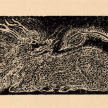Sexual desire is not an instinct, nor is it a necessary physical need
psychoanalysis

Sexual desire is not instinctive. Without sexual discourse and symbolic order, a person wouldn’t understand what sex is. Without sexual knowledge, a person wouldn’t know how to make love. Sexual behavior is not determined by genes. Your sexual desire is not due to hormonal secretion; it’s not a cyclical physiological need that must be satisfied like eating or drinking.
Considering sex as something biologically determined can also be used by some as an excuse for sexual harassment, claiming their behavior is driven by uncontrollable biological instincts, like seeing a scantily clad woman and feeling sexual desire. However, this is not a fixed relationship. Not everyone feels sexual desire when they see someone dressed provocatively. Some might feel aroused by feet or even a sow, driven by different mechanisms of desire, which are not indicative of innate "perversion." This notion shifts the responsibility from the symbolic system to genes. We should reflect on how the symbolic system shapes us rather than blaming biological instincts.
People who believe sex is a physiological need may be using this as an excuse for their indulgence, claiming, "I can’t control it," to avoid responsibility. Sexual desire is a product of the symbolic system, oriented towards phallic desire. It’s also linked to societal taboos. In some primitive societies, there were no taboos against nudity, so seeing a naked person didn’t cause sexual arousal. If we covered ears instead of genitals or breasts, ears could become a sexual symbol, causing arousal and physiological reactions.
While physiological reactions like morning erections in males can be spontaneous, they don’t necessarily indicate sexual desire. This applies to both men and women. People often confuse physiological reactions with sexual desire due to a scientific realist perspective that doesn’t separate the two. Thinking that an erection means desire can lead to seeking sexual satisfaction, which then truly ignites sexual desire.
Animals may feel sexual desire when they see the opposite sex, but this doesn’t mean humans will. Sexual symbols don’t affect everyone the same way. A clear example of sexual desire’s symbolic nature is how mere words in erotic novels can arouse a person. These arousing descriptions are part of a symbolic order, not a biological one. Sexual desire is symbolic, not physiological, though physiological reactions are triggered by symbols.
The act of sex brings physical pleasure through the friction of genitals, but this pleasure can also be self-induced. However, self-induced physical pleasure doesn’t equate to fulfilling sexual desire. Satisfaction from masturbation differs from making love with someone else. Societal sexual desire fulfillment often involves an aggressive, other-directed aspect, which self-pleasure cannot satisfy.
People with sexual repression, especially men, may find that masturbation doesn’t alleviate their issues because their sexual desire remains unfulfilled. Male sexual repression stems from being wholly castrated and centered around the phallus. Sex is a competitive endeavor for men, and they take pride in erections caused by seeing the opposite sex. Men often boast about their sexual conquests. While women can also behave this way, it’s less common. Women are not as phallus-centric and can tolerate their "frigidity," ignoring the phallic game rules more easily than men.
Some feminists advocate for female sexual liberation, which might play into male strategies for satisfying their pleasure. Encouraging women to be more open makes it easier for men to approach them. Gender opposition and constructed gender differences, driven by pastoral feminism, enhance male satisfaction. The greater the gender opposition, the more evident the sex differences, reinforcing women's role in the symbolic order as phallic objects. Gender difference is a social structure, not a biological fact.
Women also have sexual desire, but it doesn’t mean aligning with men’s views. Men are castrated and lack the kind of liberation imagined. Human liberation ties to sexual liberation. A person controlled by sexual desire can’t achieve true liberation. Lacan suggests that asceticism and complete liberation are logically connected—asceticism can lead to spiritual purity. However, this is practically impossible due to pathological castration, as repressed men still have subconscious sexual desires. These desires can be released in other ways, not necessarily through sexual acts.
Our society places excessive importance on sex due to systemic concealment, making hidden things seem best. This reflects the system’s desire, where postmodern super-ego drives one towards sexual pleasure, turning it into a task. As private space is invaded by the lascivious super-ego, sexual pleasure loses its intimacy, reducing satisfaction.
I’m not advocating for universal asceticism. My point is that sexual desire is not a biological instinct. Even if it requires periodic release, masturbation can address physiological needs. Finding a partner isn’t necessary for this. In essence, such sexual relationships are a form of masturbation. True biological sexual relations are fundamentally no different from self-pleasure.
Sexual desire doesn’t need to be linked to sexual acts. Artistic activities can also satisfy sexual desire by releasing the same libido, thereby alleviating sexual repression.
About the Creator
opinion lab
Psychoanalysis, Think, Action, beyond
Enjoyed the story? Support the Creator.
Subscribe for free to receive all their stories in your feed.






Comments
There are no comments for this story
Be the first to respond and start the conversation.